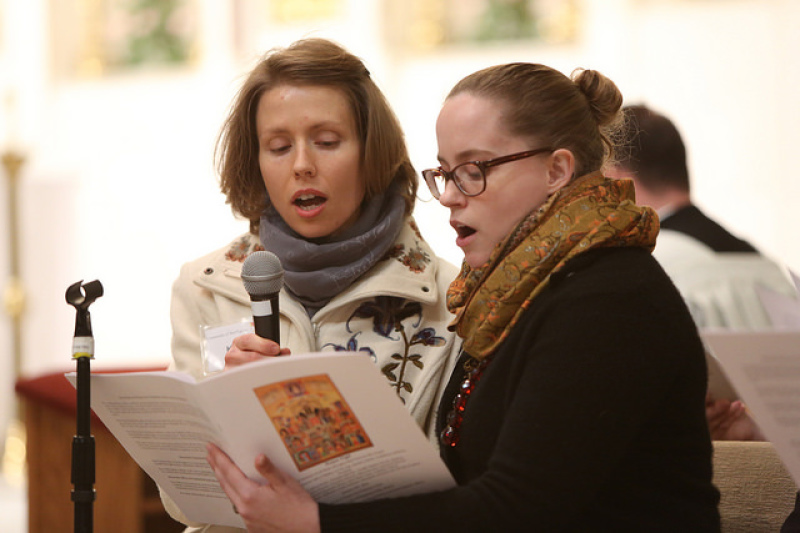
Going to church may be beneficial for women's health, according to a new study from the Harvard T.H. Chan School of Public Health.
The study, published in JAMA Internal Medicine Journal, tracked women during a 16-year-period and noted that women who came to religious services more than once per week were 30 percent less likely to die than women who never came.
The study further said that the women who attended church more often were at remarkably lower risk of cardiovascular mortality (27 percent) and cancer-related deaths (21 percent).
About 40% of Americans attend religious services once per week or more.
"Our results suggest that there may be something important about religious service attendance beyond solitary spirituality," said Tyler VanderWeele, professor of epidemiology at Harvard Chan School and senior author of the study. "Part of the benefit seems to be that attending religious services increases social support, discourages smoking, decreases depression, and helps people develop a more optimistic or hopeful outlook on life."
The study found that women who went to religious events more than once a week and those who went to church once a week had significantly lower risk of mortality (33 percent and 26 percent) than those who never attended.
The subjects of the research were mainly White Christian nurses, who have fairly common socioeconomic status, and so the authors do not recommend generalizing the results to general public as the nurses are known to be more intentional in maintaining healthy habits by and large. The study estimates also could not be used for other countries, or regions where religious freedoms are very limited.
Several studies have been undertaken before to prove the benefits of religion on health, but many received critical reviews for treating "reverse causation," as causation. The critics claimed that only healthy people attend services, so attendance cannot be counted as a factor controlling health.
In light of these concerns, the scientists adjusted subjects' responses for a range of factors, such as diet, alcohol consumption, physical activity, smoking status, body mass index, depression, social integration, ethnicity, and race.
Data was taken from Nurses' Health Study, which recorded bi-annual interviews from 74,534 women between 1992 and 2012, regarding their diet, lifestyle, and health. Questions regarding their church attendance were asked every four years.
There seems to be a generalized agreement among doctors and health experts regarding the benefits of religion on health.
Andrew Newberg, director of research at Jefferson Myrna Brind Center for Integrative Medicine, who was not part of the study, has tried to understand how prayer changes the brain.
"Being a religious or spiritual person can not only reduce general anxiety [but also] reduces the big anxiety, the ontological anxiety about death and the meaning of life," Newberg said.
He added that religion "encourages an aspect of hope and provides a coherent framework of meaning and a way of looking at the world, which I think can help at times of stress."



















